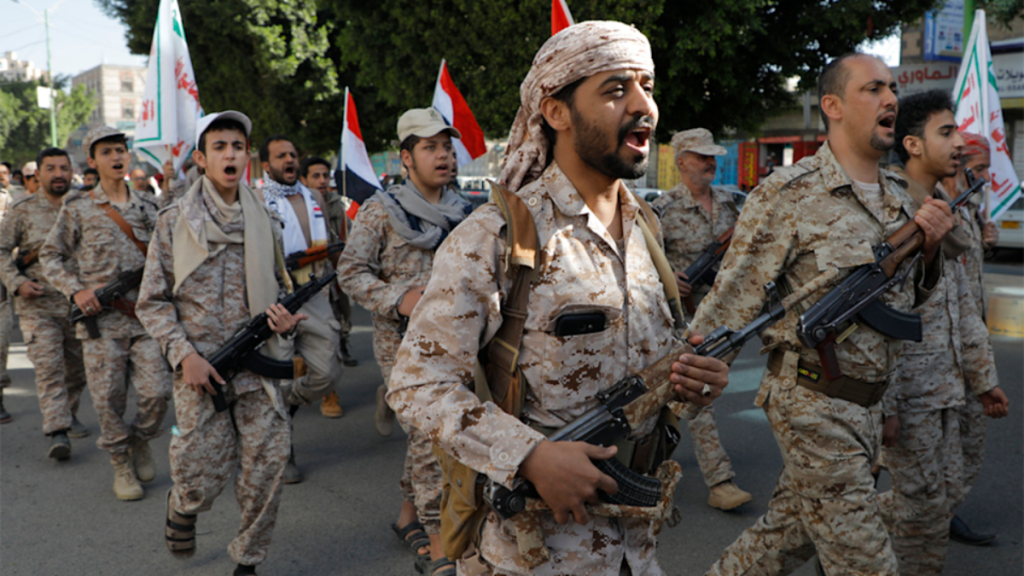In a controversial move that has sparked political and legal debate, former President Donald Trump has announced the deployment of additional U.S. military forces to the Middle East without prior authorization from Congress.
The decision marks a significant escalation in America’s military posture in the region and raises fresh concerns about the executive branch’s unilateral use of military power.
Unilateral Deployment Sparks Legal and Political Controversy
Trump’s decision to move forward with sending U.S. troops to the Middle East came amid rising regional tensions and growing threats from Houthi rebels and other actors perceived as hostile to U.S. interests.
According to the former president, the move is intended to “protect American interests, allies, and ensure regional stability.” However, lawmakers on both sides of the aisle have criticized the decision for bypassing the legislative branch.
The U.S. Constitution gives Congress the authority to declare war, and many legislators argue that any major military deployment should involve congressional approval. Critics argue that Trump’s unilateral move undermines democratic oversight and risks entangling the U.S. in conflicts without clear objectives or public support.
“This is a blatant overreach of executive authority,” said one senior member of the Senate Armed Services Committee. “Deploying troops without congressional consultation violates the War Powers Resolution and sets a dangerous precedent.”
Strategic Objectives Behind the Deployment
According to Trump’s statement, the deployment is aimed at countering hostile activity by Iran-backed Houthi forces in Yemen, who have recently escalated attacks on U.S. allies and regional shipping routes. The Middle East remains a strategic hotspot for the U.S. military, with vital trade routes, energy resources, and alliances at stake.
The new deployment reportedly includes combat-ready units equipped with advanced surveillance, defense, and strike capabilities. Though Trump did not specify the number of troops or precise locations, military analysts believe the deployment will reinforce existing bases in countries such as Saudi Arabia, Kuwait, and the United Arab Emirates.
Reactions from Lawmakers and International Leaders
Members of Congress have expressed concern about both the process and the potential consequences of the deployment. Several prominent lawmakers have called for hearings to examine Trump’s decision and to reassert congressional authority over military engagements.
Senator Tim Kaine (D-VA), a longtime advocate for War Powers reform, stated, “The American people deserve transparency and accountability when it comes to decisions about war and peace. This deployment violates both.”
On the international stage, U.S. allies have offered mixed reactions. While some Gulf States welcomed the move as a show of American strength and commitment to regional stability, European leaders have called for diplomatic solutions rather than military escalation.

War Powers Resolution and Presidential Authority
The War Powers Resolution of 1973 was enacted to limit the president’s power to commit U.S. forces to armed conflict without congressional approval. Under the law, the president must notify Congress within 48 hours of deploying troops and must withdraw forces within 60 days if Congress does not authorize continued involvement.
Legal experts say Trump’s announcement could prompt a constitutional challenge or a legislative response. “If left unchallenged, this sets a precedent that could be exploited by future presidents,” said a constitutional law professor at Georgetown University. “Congress must reassert its role in decisions of war.”
Implications for U.S. Foreign Policy and 2024 Election
Trump’s decision to deploy troops without congressional approval may also have political implications as he eyes a return to the White House in 2024. While some of his supporters praise the move as a display of strong leadership, critics argue it highlights a pattern of disregarding legal and institutional norms.
The deployment may also shape the U.S. foreign policy landscape, especially in an election cycle where voters are paying close attention to international affairs, military involvement, and the role of the U.S. abroad.
Should Trump return to power, this action may be used as a blueprint for his foreign policy approach—prioritizing decisive military action over multilateral cooperation and congressional oversight.
Conclusion: Renewed Debate Over Executive War Powers
Donald Trump’s decision to send U.S. forces to the Middle East without the backing of Congress has reignited a long-standing debate over the balance of power between the executive and legislative branches.
As tensions in the region remain high, the U.S. is once again faced with questions about military engagement, oversight, and the legal boundaries of presidential authority.
Whether this move strengthens America’s global posture or leads to further conflict remains to be seen, but one thing is certain: the controversy surrounding executive war powers is far from over.
For more details on U.S. military operations and deployments, visit the U.S. Department of Defense.
Disclaimer – Our team has carefully fact-checked this article to make sure it’s accurate and free from any misinformation. We’re dedicated to keeping our content honest and reliable for our readers.
